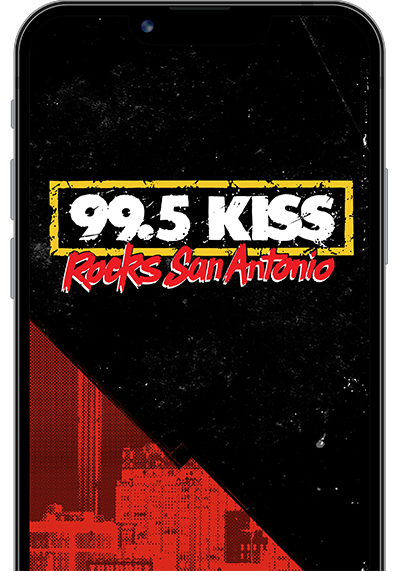What insurance do I need as a rideshare driver?
As the popularity of rideshare services like Uber and Lyft continues to grow, many drivers are finding new ways to earn extra income by using their personal vehicles. However, before getting behind the wheel, it is important to understand how insurance works in the world of rideshare. While driving for these platforms may seem straightforward, the reality of auto insurance coverage is anything but simple. Whether you are a full time driver or just picking up riders on weekends, CheapInsurance.com explains what you need to know.
In most cases, your personal auto insurance does not fully cover you while you are driving for a rideshare service. Standard auto policies are designed for personal use and typically exclude commercial activity. Once you open a rideshare app and begin looking for passengers, your insurance provider may consider that commercial use and deny coverage for any accidents or claims that occur during that time.
If you get into an accident while actively participating in a rideshare trip and only have a personal policy, there is a good chance your claim will be denied. This can leave you responsible for property damage, medical bills, and even legal costs. This gap in protection is one of the main reasons rideshare insurance exists.
Some insurers offer add-ons or separate policies to extend coverage to rideshare activities. These policies can provide protection during the times when your personal coverage ends and before company insurance begins. Without that added layer, you may be left without coverage at critical moments.
What Are the Different Rideshare Coverage Periods?
Insurance for rideshare driving is split into different periods, and coverage varies depending on what stage you are in. Here are the three main periods used by insurers and rideshare companies:
- Period One: This is the time when the driver has the app on and is waiting for a ride request. At this stage, your personal policy is often no longer valid, but the rideshare company typically provides limited liability coverage.
- Period Two: This begins when you accept a ride and are en route to pick up the passenger. During this period, the rideshare company's commercial insurance kicks in, offering more extensive coverage.
- Period Three: This starts once the passenger is in your vehicle and lasts until they are dropped off. This is the period with the most comprehensive coverage provided by the rideshare company, including liability, collision, and sometimes uninsured motorist protection.
Understanding these stages is critical because they determine which insurance policy is active and what kind of protection you have at each moment.
When Does Rideshare Company Insurance Apply vs. Your Own?
Rideshare company insurance and your personal insurance do not work at the same time. Instead, they activate depending on what you are doing. If you are not logged into a rideshare app, only your personal insurance applies. The moment you open the app and begin waiting for ride requests, your personal coverage likely ends, and the rideshare company provides minimal coverage.
Once a ride is accepted, the rideshare company’s full commercial insurance steps in. This remains active until you drop off your passenger. If an accident occurs during a time when neither policy applies, such as in a gray area between personal use and rideshare use, you may be left paying out of pocket.
That is why it is important to understand these coverage transitions and consider additional insurance if needed. Some drivers wrongly assume their personal auto insurance is enough, only to find out after a claim that they were not covered.
Do You Need to Buy a Separate Rideshare Policy?
Whether you need to buy separate rideshare insurance depends on your insurer, how often you drive, and the level of risk you are comfortable taking. If you are driving occasionally and your current insurer offers a rideshare endorsement, you may only need to add that to your existing policy.
However, if your insurer does not offer rideshare coverage, or if you drive frequently, purchasing a separate rideshare policy may be necessary. This added coverage bridges the gaps between your personal and company-provided policies. It can protect you during Period One and sometimes offer additional benefits that the rideshare company’s policy does not cover.
Before purchasing, speak with your insurance agent to review what your current policy covers and what is missing. It is better to know your options before something goes wrong.
Does Insurance Work Differently If You Are a Delivery Driver?
If you are using your vehicle for delivery rather than rideshare, insurance coverage can be very different. Most delivery services provide limited liability coverage, and many exclude physical damage to your vehicle. Some delivery companies do not offer any insurance at all, which means you would be entirely dependent on your own personal or commercial policy.
Because delivery apps operate under different risk models, many personal auto insurance policies also exclude delivery use. If you plan to deliver food or packages, it is essential to ask your insurer whether your policy allows it or if you need to purchase special coverage.
What Should You Ask Your Insurance Provider About Rideshare Coverage?
Before driving for a rideshare or delivery company, have a detailed conversation with your insurance provider. Here are a few important questions to ask:
- Does my current policy allow for rideshare or delivery use?
- Will I be covered while the app is on and I am waiting for a ride?
- Do you offer a rideshare endorsement or separate rideshare policy?
- Will my collision and comprehensive coverages still apply when driving for Uber or Lyft?
These questions will help you identify coverage gaps and avoid surprises later. It is also a good idea to review your policy every few months, especially if your driving habits change.
Driving for a rideshare or delivery platform can be a flexible and rewarding way to earn income, but it also comes with unique risks. Relying on your personal insurance alone is rarely enough. Understanding how your coverage works, what periods are involved, and when each type of insurance applies is crucial to staying protected.
By exploring rideshare insurance options and asking the right questions, you can ensure you are fully covered every time you hit the road. With the right preparation, you can drive confidently knowing your insurance is ready when you need it.
This story was produced by CheapInsurance.com and reviewed and distributed by Stacker.









